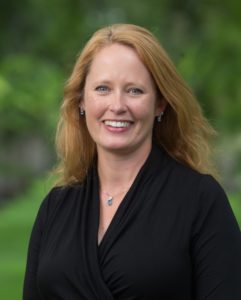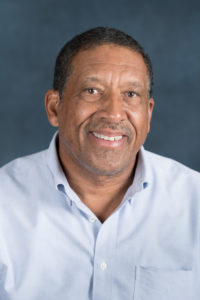
The Graduate Center for Inclusive Mentoring at Colorado State University has opened, with the goal of propelling student success by better cultivating mentor-mentee relationships between CSU faculty and graduate students.
The new center is the result of the Graduate School’s focus on mentoring initiatives over the last two years, and is under the direction of Greg Florant and Mary Stromberger. Florant currently serves as the director of the Graduate Center for Diversity and Access, and Stromberger is the associate dean of the Graduate School.
“We know mentoring can be a crucial and defining factor in a graduate student’s success, particularly students from unrepresented populations,” says Florant. “The GCIM now expands our ability to retain and recruit students in underserved populations, including first-generation students and women in STEM, in a more inclusive way.”
GCIM re-envisions the Graduate Center for Diversity and Access
GCIM, housed in the Graduate School, is a re-envisioning of the Graduate Center for Diversity and Access.

The GCDA was originally established to support faculty mentoring graduate students from underrepresented backgrounds participating in the National Science Foundation’s Alliance for Graduate Education and the Professoriate program, and later the Louis Stokes Alliance for Minority Participation Bridge to Doctorate program. With its limited focus, the GCDA was not positioned to address the mentoring gap among other constituents.
“The new center allows us to overcome deficiencies that had limited our potential to influence and sustain positive cultural change,” says Stromberger. “GCIM integrates the Graduate School’s mentoring programs and what was originally the GCDA for resource sharing and synergies.”
Recruitment programs for undergraduate students also continue to be a priority.
“Our collaborations with the (on-campus) cultural centers for programming such as the Graduate Prep Academy will continue under GCIM,” explains Stromberger, and Summer Recruitment Experiences for Undergraduate programs will also be overseen by GCIM.
CIMER faculty lay foundation for sustained mentoring efforts
In 2016, the Graduate School, under Dean Jodie Hanzlik’s leadership, commissioned two task forces, one led by graduate students and one by faculty, to develop white papers on mentoring, and conducted a survey of students to assess perceptions of campus and community climate. These initiatives revealed a common need by all graduate students to be supported with improved mentoring in academic areas, including teaching and research, as well as personal and professional development.
A major result of these initiatives was the development of a formal mentorship program. In May 2018, 12 CSU faculty members representing the eight colleges and interdisciplinary programs were selected to participate in an intensive Center for the Improvement of Mentored Experiences in Research (CIMER) facilitator training. CIMER’s curricula are specifically targeted to faculty, post-doctorates, graduate students and undergraduate students, with trainings that are theoretically grounded, evidence-based, and culturally responsive.
The CIMER program produced a highly engaged faculty leadership team that, along with a core group of GCDA faculty, helped re-envision GCDA. These faculty now champion mentorship across the University as they represent GCIM.
“Creating a core group of GCIM faculty lays a foundation for sustained mentoring effort across the University, with benefits to future graduate students, post-doctorates, and junior faculty,” said Stromberger.
Karan Venayagamoorthy, a professor in the department of Civil & Environmental Engineering, participated in the training.
“The CIMER training was an eye-opener for me – it revealed the multi-faceted nature of mentoring which is a key activity for all of us as faculty at CSU,” he says. “This training undoubtedly provided me with both a broader perspective and helpful approaches to effective mentoring.”
CIMER faculty in the GCIM will lead faculty training focused on maintaining effective communication; aligning expectations; equity and inclusion; promoting mentee research and scholarship self-efficacy; fostering independence; and promoting professional development.
Faculty interested in becoming a GCIM faculty member should contact Florant at Greg.Florant@colostate.edu. A formal call to apply for GCIM will be released later this year.
In addition to significant investments in training, the GCIM will oversee the Graduate School’s newly created Mentoring Mini-grant Program. Faculty in all graduate programs will be able to apply for mini-grants for department specific recruitment and retainment.